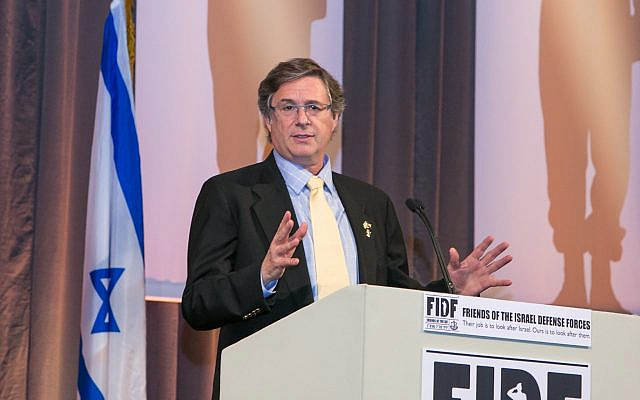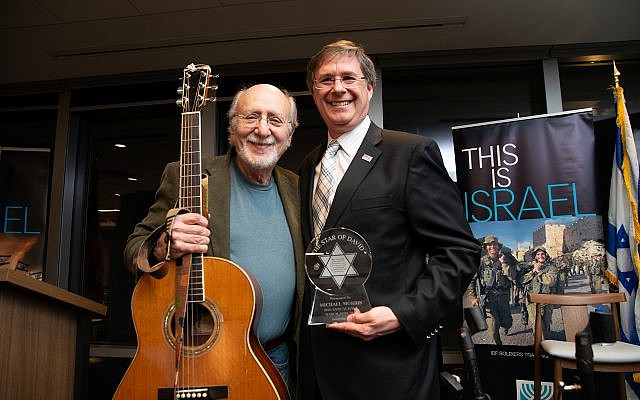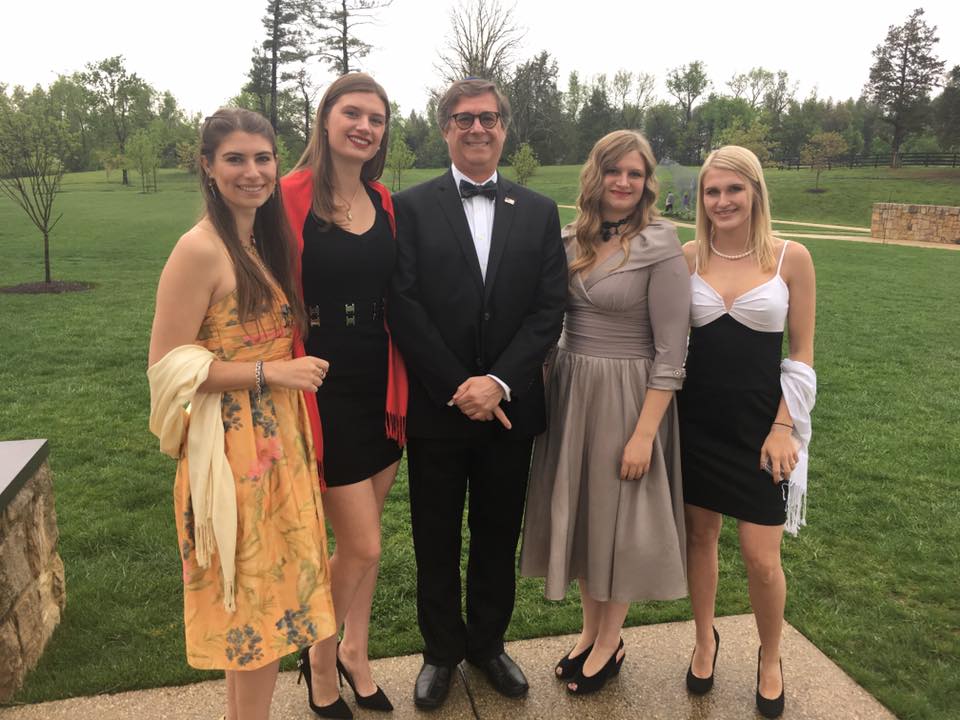Morris Engineers Path of Social Welfare
Get to know Michael A. Morris and find out what motivated him to his current roles at the top of the AJT and as a philanthropist in Atlanta.

The key to strong investment in your community, whether through volunteerism or philanthropy, is a sincere fervor for the cause. That is according to Michael Morris, the publisher of the AJT, known for his business acumen and a long list of contributions to Atlanta and its Jewish community, along with several leadership roles connected to Israel, the Holocaust and various museums.
“You want to be passionate about” your communal involvements, Morris said, in his AJT office in Sandy Springs, the walls and shelves lined with his numerous awards and books on Judaism, history and leadership. “Some people join because they are asked to be part of a prestigious board. If you aren’t passionate about its mission, you need to forgo that prestigious board position.”
Does the 56-year-old Morris practice that? “I think so,” said the former investment banker who once planned to be a chemical engineer.
Giving back is a social responsibility Morris admits he learned from his philanthropic father, Bernie Marcus, co-founder of The Home Depot.
“My father enabled me to give back to the community. Not everyone can do that. Most people worry about feeding their family first.”
He added that Marcus also instilled in him “the importance of being Jewish, the responsibility of being Jewish, the importance of Israel and the responsibility we have to safeguard Israel in America.”

Born in New Jersey, Morris was 6 when his mother, Billi, met Marcus. They lived in Encino in the San Fernando Valley of Southern California before Marcus moved the family to Atlanta in 1979.
Morris said he was always good with numbers, a fascination that has led to more than one statistic-based AJT Publisher’s Note.
He spent his junior and senior years at Pace Academy and then headed to Vanderbilt University to major in engineering, later changing his major to economics and finally, business.
It was at Vanderbilt that Morris began his path to Jewish volunteerism by pledging the AEPi fraternity. For probably the first time in his life, he found a profound link to his Judaism and other Jews, he said. “At the time there were less than 400 Jewish students in a school of 10,000,” Morris said.

“What I learned at Vanderbilt was if I joined an organization, I could work my way to the top of it.” At AEPi, he became president of the chapter senior year.
After college, he worked 2 ½ years on the O.T.C. trading floor of Merrill Lynch, but when the stock market crashed in 1987, it was a “warning bell,” he said. He returned to his family in Atlanta and became assistant comptroller for Wolf Camera before deciding, if he wanted to be an investment banker, he needed an MBA, which he earned at Emory University in 1992.
Pursuing a career was never enough for Morris, he said. “I was looking to fill up my time, to do more than just work.”
He chose to volunteer with the American Jewish Committee’s young adult leadership program, ACCESS, for which he later became chair, and used that experience to help the Jewish Federation of Greater Atlanta beef up its young adult division. When it comes to Jewish causes, he figures it’s “raising money for the Jewish community to reinvest in the Jewish community.”
Morris has built a reputation as someone who can help nonprofits solicit funds. Although he’s served in various leadership roles with such Jewish organizations as the Jewish National Fund and Friends of the Israel Defense Forces Southeast regions, he finds he’s most effective when concentrating on two or three nonprofit board positions at a time that don’t solicit from the same pool.
His advice to those considering where to volunteer: “When you join a board, don’t try to do everything. Pick things that can make a difference and focus your energies on that.”
Currently, Morris is on the boards of the AEPi Foundation, The National World War II Museum and the Georgia Commission on the Holocaust.
The respect Morris has gained from his giving is apparent in the community awards he’s received over the years, including being Israel Bonds’ 2019 Atlanta community honoree in March. At the ceremony, he played guitar with one of his childhood folk music idols, Peter Yarrow of Peter, Paul and Mary fame.
Outside the publisher’s office is a proclamation from then President George W. Bush “reposing a special trust and confidence in the integrity and ability” of Morris and appointing him a member of the U.S. Holocaust Memorial Council in 2006. At the time Morris was the youngest and first person under 50 on the board, he recalled.
“I felt a responsibility to survivors and carrying on their memory to the next generation.” It’s a similar commitment he has to Israel and its warriors. “I always appreciated and respected the fact that every Israeli has to go into the service at a young age. Kids are ensuring the survival of the State of Israel.”
The halls of the AJT offices are lined with Ziv Koren’s poignant photography of IDF soldiers. While he never wanted to be a fighter, Morris said he fell in love with Israel in his 20s when his father took the family on a trip there for the first time. Morris estimates he’s visited 20 times since.
Five years ago, he became publisher of the AJT after serving in the same position at travelgirl magazine. “When I took [the AJT] over, my job was not to create something; it already had a 90-year history. I had to fix it and fine tune it.”
Taking stock of his achievements, Morris believes his biggest accomplishments include helping create “an important, sustainable fundraising chapter of the FIDF,” which raises more than $1 million a year; starting a new community tradition with last year’s Atlanta Jewish Life Festival; and helping relaunch a struggling AJT.
With such a strong track record of giving, Morris is constantly hit up for donations. He said it’s “easy to say ‘no’ to money requests. On a monthly basis, I get solicited for my entire net worth. Since I can’t give away my entire net worth, I have to say ‘no’ more than I say ‘yes.’”
Despite all his giving, Morris has to think deeply and thoughtfully before responding why philanthropy is so important. “It does boil down, at a certain point, to social responsibility. We are our brothers’ keepers.”



comments